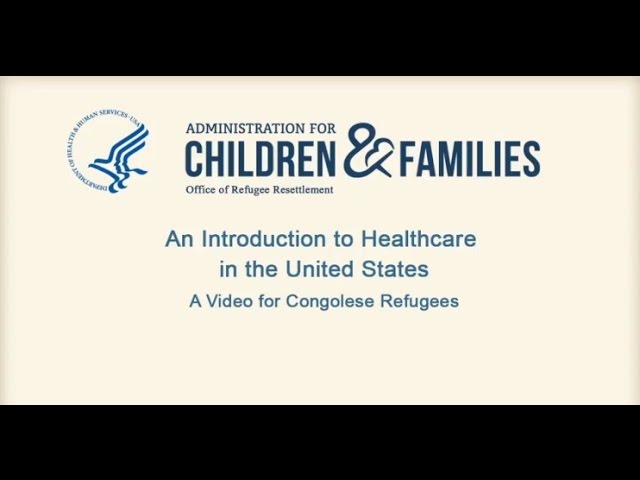Newcomer adolescents (10–19 years old) and youth (15–24 years old) face distinct challenges as they navigate young adulthood in a new environment. Service providers can play a pivotal role in supporting this demographic by implementing tailored strategies. This blog post outlines key recommendations for supporting youth health needs in a family-centered, trauma-informed, and culturally responsive way.
1. Ensure Access to Youth- and Teen-Friendly Health Care
- Connect to Adolescent-Centered Providers: Refer individuals to trauma-informed clinicians experienced with refugees and teen-, youth-, and immigrant-specific health needs. Consider offering refugee health training to clinics experienced with teens and youth but who are less experienced with refugees. HRSA has a listing of community health centers, NACHC has a listing of school-based health centers, and the Society of Refugee Healthcare Providers has a listing of refugee-serving clinical providers.
- Support Regular Health Screenings: Ensure individuals receive immunizations, vision and hearing tests, tuberculosis (TB) screening, and other age-appropriate care.
- Address Reproductive and Sexual Health: Support teens in accessing accurate, judgment-free information on consent, menstruation, sexually transmitted infections, and relationships. Ensure teens know their rights to confidential health care where applicable. Amaze.org has animated video resources for teens and youth in 70+ languages, and Advocates for Youth covers many sensitive topics for service providers. Switchboard has a downloadable resource on Providing Culturally Sensitive Sexual and Reproductive Health Education for Newcomer Youth.
2. Address Mental Health Needs
- Recognize Signs of Distress: Adolescents may experience heightened stress due to social pressures, identity formation, and past traumas. Providers should ensure access to mental health services that are effective in cross-cultural settings and create safe spaces where youth can express themselves without fear of stigma.
- Normalize Help-Seeking: Share stories or visuals that destigmatize mental health support. Offer group settings if one-on-one sessions feel intimidating.
- Refer to Trauma-Informed and Culturally Sensitive Mental Health Providers: Collaborate with clinicians who offer language support and understand refugee experiences.
- Bullying Prevention: Refugee and newcomer students may be more likely to be bullied due to potential exposure to violence or trauma. They may not understand how to effectively manage these situations, which could lead to further feelings of social isolation and stress. Help prevent and respond to the bullying of refugee students.
3. Provide Health Literacy and Navigation Support
- Teach Teens and Youth How the Health System Works: Help them understand how to make appointments, what to bring to those appointments (including proof of insurance coverage), and the different levels of care (e.g., emergency versus urgent care). For more guidance on coaching clients on preparing for initial medical appointments, download this information guide and checklist. Support teens and youth by providing education and practice around U.S. health care navigation and problem-solving common health care access issues.
- Educate About Rights and Confidentiality: Many teens may be unaware of their health care rights. Clarify what they can access independently and what is shared with guardians. Adolescents’ privacy varies state-by-state and laws are subject to change. The American Academy of Pediatrics classified adolescent privacy laws in 2022, but clients should ask their health care providers for the most up-to-date information.
- Empower Through Peer Education: Youth-led health workshops or ambassador programs can demystify topics and reduce stigma among peers.
4. Promote Healthy Behaviors and Daily Routines
- Promote Physical Activity, Sleep, and Nutrition: Offer simple education on the importance of physical activities, balanced diets, and sleep routines. Assist teens in scheduling and attending health care appointments with their primary care provider, who can provide medical recommendations around these health topics. Where appropriate, connect teens to local sports programs.
- Discuss Substance Use: Talk openly about the risks of alcohol, tobacco (including vaping), and drugs. Provide teens and youth with education about common drug-related terms in the U.S. and who to go to if they encounter substance use or pressure to use.
- Facilitate School Integration: Newcomer teens and youth may face academic disruptions. Collaborate with caregivers and schools to provide language support, tutoring, and mentorship programs that help students catch up academically and feel connected to their new environment.
- Encourage Social Engagement: Discuss participation in extracurricular activities, youth groups, and community events to help teens build friendships and a sense of belonging. These connections are vital for emotional well-being and social development. Explore with teens the potential harms of social media and how participating with in-person activities can benefit their health.
5. Engage Families While Respecting Teen and Youth Autonomy
- Bridge Cultural Gaps in Expectations: Help caregivers understand adolescent development in the U.S. context while validating their cultural values. Misunderstandings between teens/youth and caregivers about independence can cause stress or conflict. Helping caregivers understand U.S. norms while honoring their values supports healthier relationships.
- Model Shared Responsibility: Provide culturally and linguistically appropriate materials to help caregivers support their child’s health journey. Encourage caregivers to stay involved in teens’ health and daily life while leaving room for autonomy. For example, teens can schedule their own appointments, but caregivers can support follow-through and transportation. Highlight that safety and autonomy are not opposites—they can and should coexist.
Conclusion
Newcomer children and youth are resilient, but they need intentional, compassionate support to thrive in their new communities. By combining trauma-informed care with collaboration across systems, service providers can play a transformative role in the lives of newcomer families.










